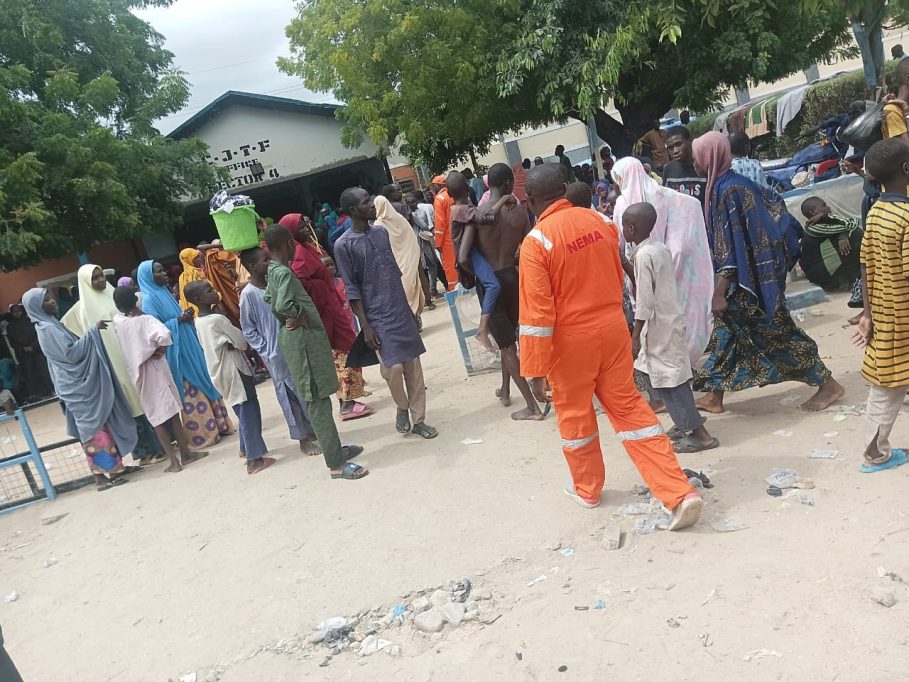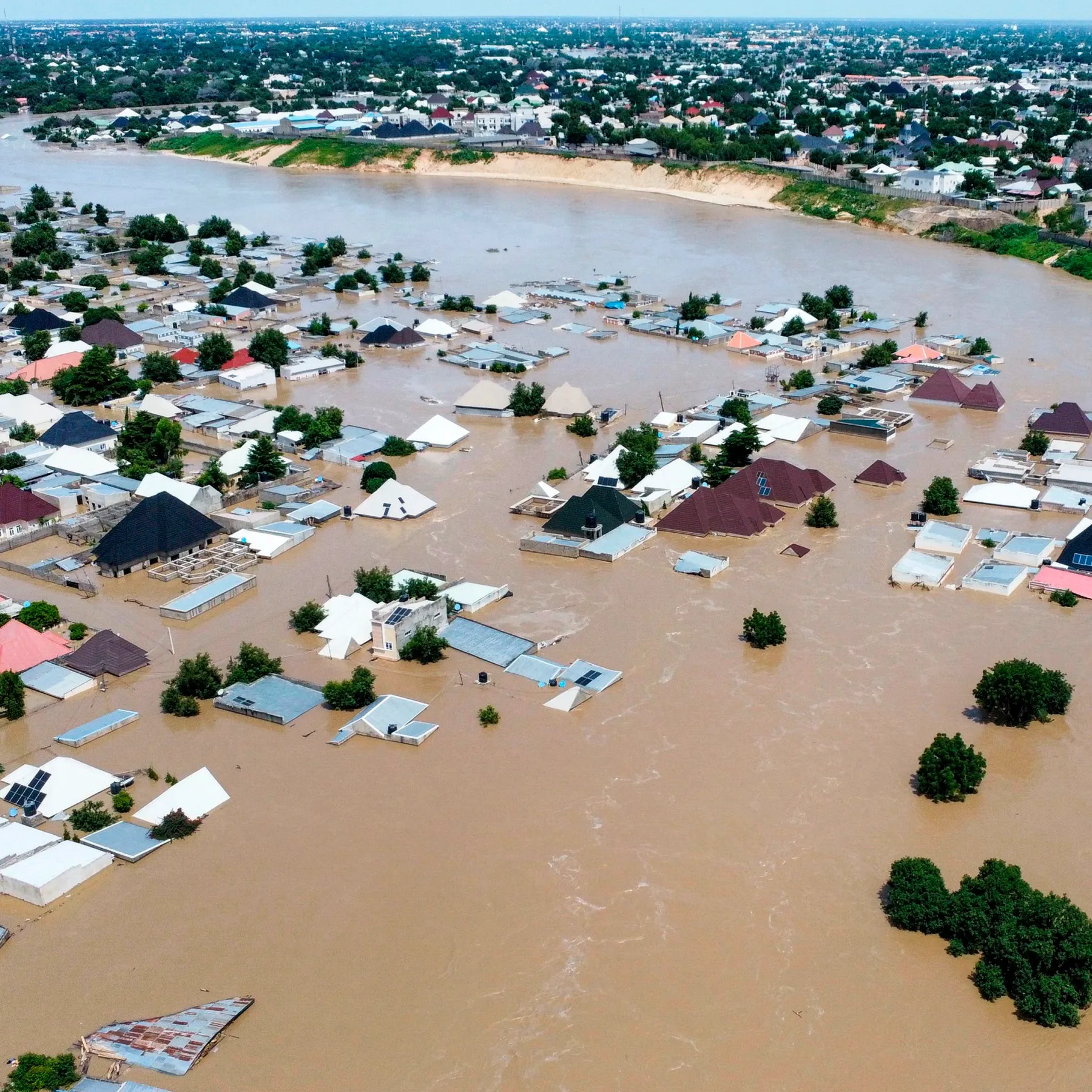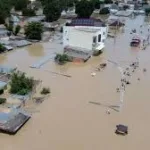Flood disaster that hit Maiduguri the capital city of Borno State earlier this week has claimed not less than 30 lives and displaced over 400,000 people.
The flood that started during the weekend got worse on Monday as it submerged many homes, farmlands, business centres, institutions like the University of Maiduguri, and other parts of the town in the north-east state.
Join our WhatsApp ChannelThe flooding was caused by the overflow of the Alau Dam following heavy rains.
“The death toll is 30,” National Emergency Management Agency (NEMA) spokesman Ezekiel Manzo told AFP.
Director General of NEMA, Zubaida Umar, said the flood has taken over about 40 percent of the entire city of Maiduguri. “The flood has taken over around 40 percent of the entire city. People have been forced out of their homes and are scattered everywhere.
“From our statistics, we have 414,000 displaced people,” Umar said.

According to NEMA, victims of the flood are being sheltered in eight camps provided by the Borno State Government.
NEMA said that armed forces, paramilitary, civil society organisations, humanitarian partners are involved in the rescue and evacuation of victims from the flooded areas.
“NEMA deployed three water purification trucks to the city, and we are partnering with FUMMAN Chemicals for the distribution of chemicals for the purification of household water to prevent the outbreak of water-borne diseases,” the agency stated in a post on X.
READ ALSO: Maiduguri Flood: Nigerian Govt Evacuates Correctional Centre As Over 280 Inmates Escape
It also advised the residents to be vigilant about harmful aquatic animals like snakes and others that find water conducive.
The agency in another post on X on Thursday morning, said its North East Office has continued with the Rescue and evacuation of persons trapped by the flood behind Shehu’s Palace and Gonge areas, adding that it has also provided water and medical outreach in the established camps and profiling of person affected by the flooding.
The United Nations UN’s Office for the Coordination of Humanitarian Affairs (OCHA), had warned that the devastating flood would exacerbate food and nutrition crisis in the state as farmlands have been damaged. OCHA also raised concerns about possible risk of a cholera outbreak as access to clean water and sanitation facilities has been severely disrupted.
Vice President Kashim Shettima, who hails from Maiduguri, visited the area on Tuesday. While lamenting that the extent of the flood disaster was beyond what was estimated, Shettima attributed it to threats of climate change and assured that the Federal Government remains committed to addressing ecological problems across the country.
Victor Ezeja is a passionate journalist with six years of experience writing on economy, politics and energy. He holds a Masters degree in Mass Communication.



















Follow Us